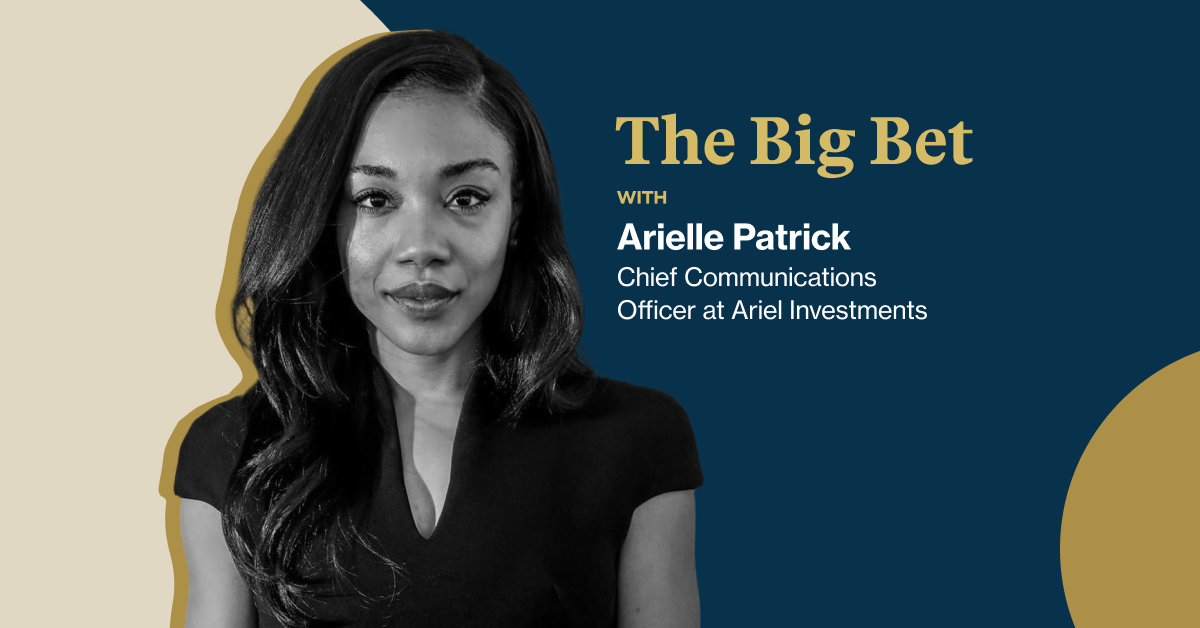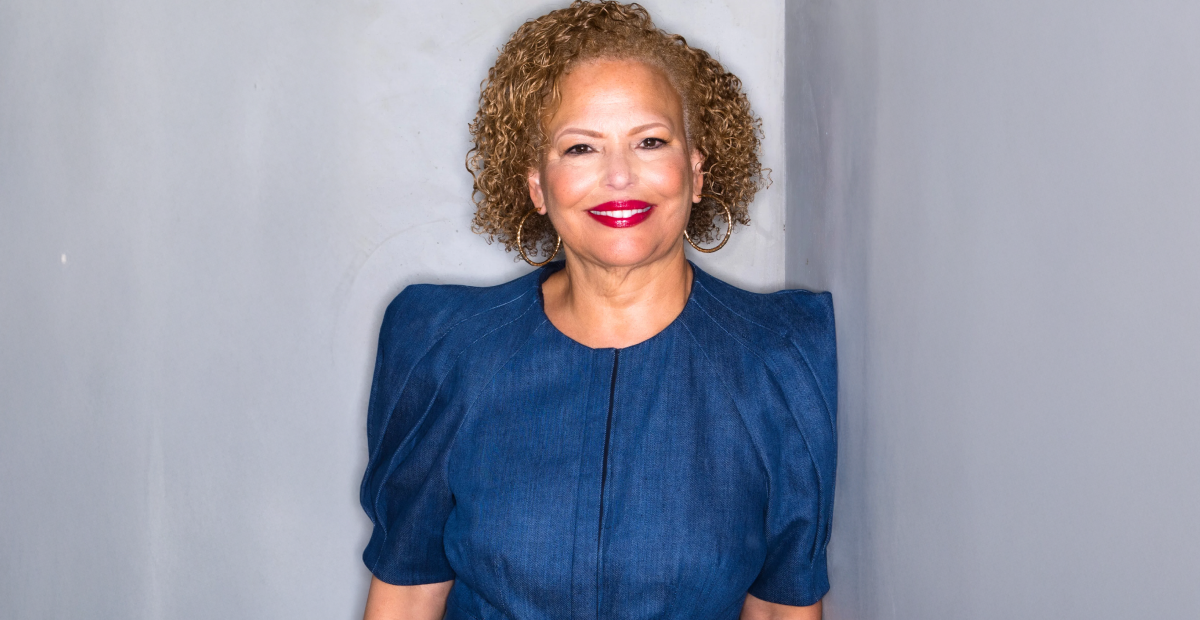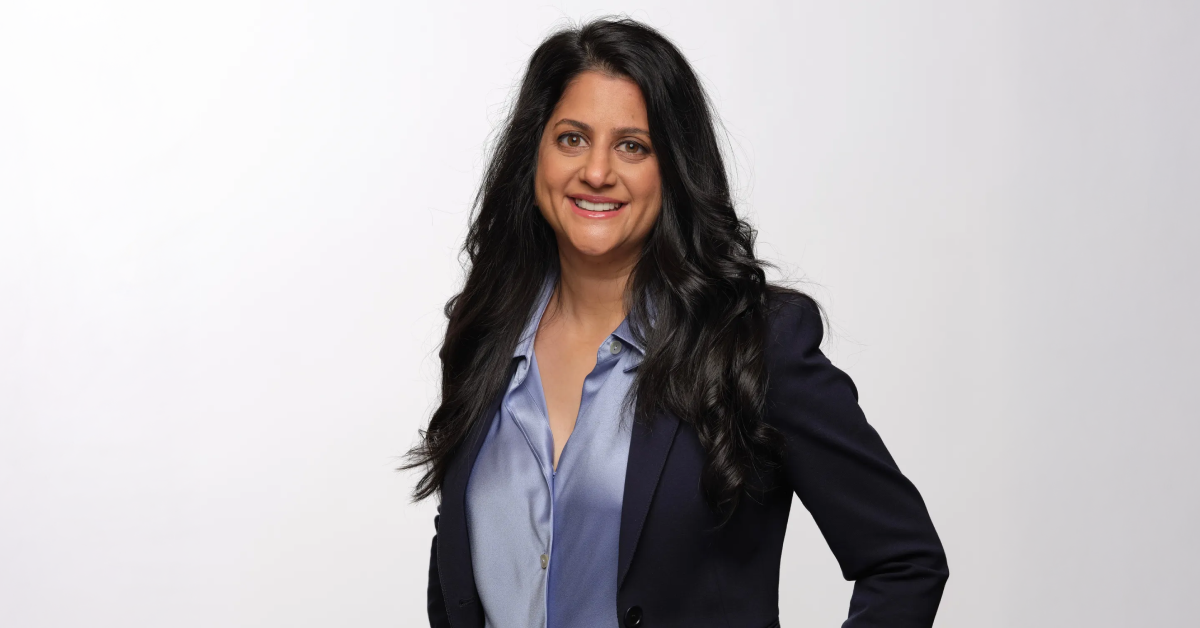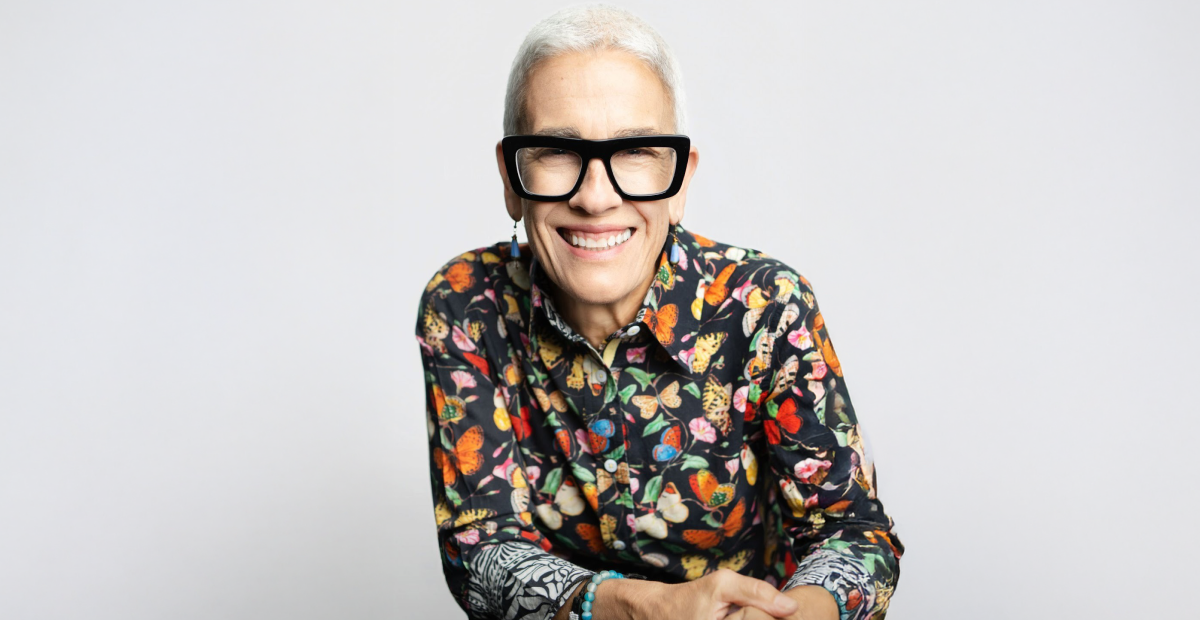The biggest career wins often come with risk. On our series, The Big Bet, Chief speaks with some of the most powerful members in our network about that single moment when they bet on themselves — and won.
She was the youngest SVP at Edelman. She was profiled by The New York Times at 31. And she’s one of a handful of Black C-Suite executives on Wall Street.
We’re speaking of none other than Arielle Patrick, the Chief Communications Officer at Ariel Investments. With a rolodex counting Mellody Hobson and John Rogers as mentors, Patrick is rich in relationships thanks to a career building up the reputations of some of the most powerful people on Wall Street. But her personal board of directors who guide her on her biggest life and career decisions? “I’m talking to my mom, my dad, and my brother, the smartest people I know.”
For this installment of The Big Bet, we spoke with the communications wunderkind on her rapid rise to the top, how her reality exceeded her goals, and how others can do the same.
On Her Rocket Ship Career
“I feel like when I look back, I only knew what I had been exposed to. I don’t know that becoming a member of an executive team of an operating committee at a financial firm was ever a goal of mine 10 years ago.
“I don’t even know where to begin, there’s the why and the how. Why I’ve been able to get where I am as fast as I have is I was born into a family that was extremely exceptional. People who have genuinely overcome every obstacle imaginable with immigrant stories on both sides of my family. I have a father that has grown a career that even people from White privileged states couldn't achieve. And a mother who is one of the most resilient, gritty, hard-working people I’ve ever met who made tough choices in her career and who was holding the family down while my father was climbing in media.
“Of course, now he’s getting all the awards because he's a known name, but it was my mom who was the reason why it was all able to happen. She was talented and could’ve done anything she wanted, but she pursued a practical career in healthcare, working double shifts overnight, and made it possible for him to succeed and for us to go to private schools and live in nice neighborhoods. I look to her as the most inspiring person, because she made a tough choice to not pursue anything and everything she could have, so that others can achieve.
“The how is a case study of what I choose to do, which is focus on being the best at what I do, but also not forcing the issue. There wasn't a point in my career where I said I wanted to work at this place or this title. I just focused on demonstrating my value, I focused on helping people outside of my organization, and investing in those relationships has turned out to be what brought opportunities.
“For example, I was at Weber [Shandwick] for five years, got promoted six times, but the reason I went to Edelman is because I invited my future boss to a cocktail party at an M&A conference for media reporters. I wanted to share the wealth. That led me to become the youngest SVP at the entire agency at 28. Then during that whole time, I stayed in contact with my mentor Mellody Hobson and I remember she called me on a Sunday to get my point of view on something that (many months later) ended up with me going to Ariel. These are things that happen organically, because I make myself available to connect, to brainstorm.
“Whenever I focus on having a stringent plan, I limit myself because what I imagine I'm capable of is far less than what I achieve in reality. I remember the dream was to make VP by the age of 30, and I became SVP by 28 and EVP by 30. If I stuck too closely to my plan, I probably would have limited myself.”
On Her Big Bet
“There was a moment in the first company I worked for where an opportunity had come about to work at a different agency and I took the interview because why not. I was met with the decision to accept the offer or stay where I was. But I trusted my gut on what it was that I needed to be more fulfilled, learn more and move in the right direction. What would make it worthwhile for me to stay if I said no? So I sat down with the president at my practice at that time and asked to be introduced to a woman that I admired in a different group. That took a lot of balls, I was 25, maybe 24, but that’s how I ended up doing crisis management and M&A. I thought this can't be that hard because I'm as smart as those people.
“When I started out I was doing typical corporate relations, but I knew I wanted to be closer to M&A, but I didn't know anything. Having the gall to demand what I wanted, to say that I’m not taking this offer but in order to stay here's what I need, that was betting on myself. And it's not without consulting my board of directors (meaning my mom, my dad, and my brother).”
On How to Ask for What You Want
“Asking for what you want doesn't come easy to everyone. It’s kind of like ripping a bandaid off, you just have to lock and load. I always think being as prepared as possible is the only way to do what you want to do. I had predicted the questions that he might ask me; I wrote myself a tough Q&A before I walked into that meeting. Having talking points ready is a good comfort blanket to have. Preparedness is really the root of confidence for me.”
On What Drives Her Now
“I want to have influence but for good. I want to be the kind of person who someone can call in the middle of the night and say I need a connection to a board member at x hospital to help my relative and I’ll be able to make that connection. I enjoy developing relationships that end up being fruitful for others. To me that's what power and influence get you, less about the money but the rooms that I've been privileged to be in and the people who trusted me with their reputations, their actual ability to operate their business, taking that rolodex and sharing it. Whatever I end up doing next I want to push myself towards that goal of having the ability to leverage relationships as a force for good.”
On Her Leadership Journey as a Woman of Color
“Having the double whammy of being a woman and a person of color, I could be mistakenly viewed as arrogant more easily. And rather than fight against that, I just had to adapt to it. Accepting that people’s biases won’t change or that I won't be able to change them was an important growth edge for me.
“I know there are people that believe women are forced to have a softer touch. I'm realistic, I learned early on that it’s unfair but knew that confidence can often be taken the wrong way. So I often approach brainstorms by asking questions rather than telling. When someone maybe says something off base or incorrect, I often ask them why they have that perception rather than saying that’s incorrect.
“That to me is better leadership, it's not being soft or weak, it's actually teaching while leading. But I wouldn't say that was my approach when I first started out as a leader. It was easy for me to be viewed as domineering or demanding or curt or insert whatever adjective to describe an arrogant woman.
“But one of the best pieces of advice I heard is when you're meeting with someone and delivering feedback or having a tough conversation, imagine their mother is sitting next to them. Would you speak to them this way in front of the person who gave them life? If the answer is no it’s probably not right. That brings us to the Maya Angelou quote: They forget what you say but will remember how you made them feel. Men should learn this too. I think women are forced to come to this conclusion earlier because they aren't getting away with forceful leadership as often as men are.”
On What It Means to Be a Boss
“I think it's about expressing true curiosity in the people that report to me and their career journey, rather than seeing them as people who are indebted to me forever. I had a meeting today with one of my superstars who I genuinely believe would be a great Chief of Staff and I just offered that to her. I observed that growth edge and told her to think about it. I don't want her to leave me (that would make my life hell), but I don't want her to feel beholden to me and I want her to know that I would support her in her future.
“In some cases I think whenever I have the opportunity to be a boss, I make sure I go beyond what they’re doing today and ask critical questions to what they want in the future and find ways to give them opportunities or make introductions to experts in that field. I think often people feel indebted to their bosses and women feel guilty about leaving. That makes me sick. You don’t owe this person anything.”
On Advice She Would Tell Her Younger Self
“Be nicer to myself. There's a way of being gritty and passionate and ambitious without being self destructive in the way that you speak to yourself, in the way you consider yourself when making decisions, and (which is sometimes required), in the way you console yourself in moments of distress. I think that's what I hope to teach my daughter. It doesn’t have to hurt that much.”
*Note: This interview has been edited and condensed for clarity.



